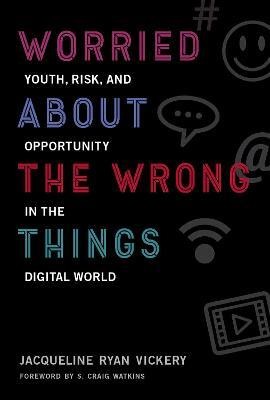Worried About the Wrong Things(English, Hardcover, Vickery Jacqueline Ryan)
Quick Overview
Product Price Comparison
Why media panics about online dangers overlook another urgent concern: creating equitable online opportunities for marginalized youth. It's a familiar narrative in both real life and fiction, from news reports to television storylines: a young person is bullied online, or targeted by an online predator, or exposed to sexually explicit content. The consequences are bleak; the young person is shunned, suicidal, psychologically ruined. In this book, Jacqueline Ryan Vickery argues that there are other urgent concerns about young people's online experiences besides porn, predators, and peers. We need to turn our attention to inequitable opportunities for participation in a digital culture. Technical and material obstacles prevent low-income and other marginalized young people from the positive, community-building, and creative experiences that are possible online. Vickery explains that cautionary tales about online risk have shaped the way we think about technology and youth. She analyzes the discourses of risk in popular culture, journalism, and policy, and finds that harm-driven expectations, based on a privileged perception of risk, enact control over technology. Opportunity-driven expectations, on the other hand, based on evidence and lived experience, produce discourses that acknowledge the practices and agency of young people rather than seeing them as passive victims who need to be protected. Vickery first addresses how the discourses of risk regulate and control technology, then turns to the online practices of youth at a low-income, minority-majority Texas high school. She considers the participation gap and the need for schools to teach digital literacies, privacy, and different online learning ecologies. Finally, she shows that opportunity-driven expectations can guide young people's online experiences in ways that balance protection and agency.


